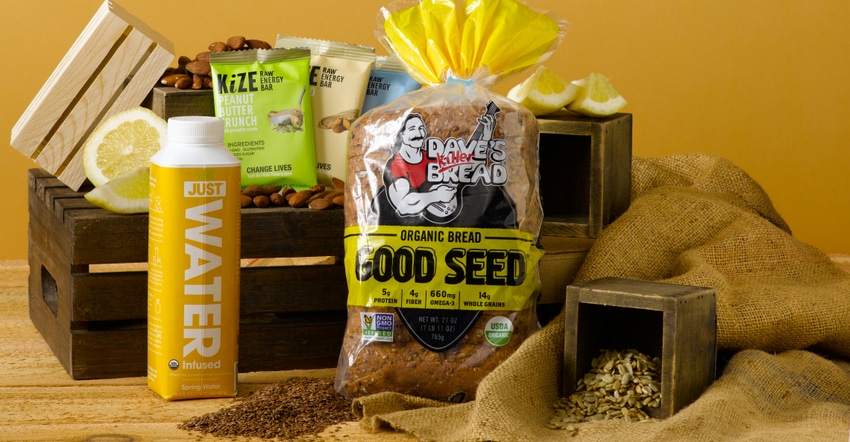
In his book Conscious Capitalism: Liberating the Heroic Spirit of Business (Harvard Business School, 2014) John Mackey, co-CEO of Whole Foods Market, says that when launching the now-supernatural chain in Austin, Texas, he learned that when done right, business can result in “societies that maximize societal prosperity and establish conditions that promote human happiness and well-being—not just for the rich, but for the larger society, including the poor … I had become a business person and a capitalist, and I had discovered that business and capitalism, while not perfect, were both fundamentally good and ethical.”
A lot about Whole Foods has changed since Conscious Capitalism appeared on shelves. In 2017, Amazon purchased Whole Foods Market for $13.7 billion, prompting immediate changes at the shelf. Amazon gadgets such as the Echo, Echo Dot, Kindle e-readers and Fire tablets appeared among produce and Amazon Prime members got discounts on food.
While Mackey continues to serve as CEO of the brand and says he’s committed to upholding its initial values, Amazon doesn’t have the cleanest track record when it comes to treating warehouse employees well (read: impossible targets to meet and timed bathroom breaks). And rumors of watered down product standards, such as considering to stock Coca-Cola, at Whole Foods have circulated on the Internet.
Even a whiff of lessened business values can spook particularly mindful consumers from Whole Foods. And that’s an opportunity. Doubling down on your mission-based business practices can attract customers—and keep them coming back.
Magnify your mission
You likely already have some sort of in-store, community-benefit program, such as donating close-to-expiration products to food rescue organizations or incentivizing your customers to bring their own cloth bags. Stocking conscious brands across categories can amplify your efforts.
More shoppers than ever are interested in buying mission-based products as a way to live their values of protecting the environment and advocating for human welfare. Finding statistics on mission-based sales is notoriously difficult, as “mission” has numerous definitions. While on-package seals and certifications such as Fair Trade USA, USDA Organic, 1% For The Planet and Certified B Corporation can offer guidance to consumers, brands often have worthy charitable values that elevate people, planet and profit that aren’t constrained by a single certification.
That said, there’s ample research showing that being a responsible business is good for your bottom line. According to a 2015 study by Nielsen, almost three out of four millennial consumers are willing to pay extra for sustainable product offerings. Seventy-two percent of people aged 15 to 20 (also called Generation Z) were committed to buying products with a reputation of environmental or social values. People ages 50 to 64 were interested in purchasing environmentally friendly products, too. “Fifty-one percent of Boomers surveyed are willing to pay extra, an increase of seven percentage points since last year. This segment will remain a substantial and viable market in the coming decade for select products and services from sustainable brands,” reports the study.
Likewise, a 2017 report conducted by the Natural Marketing Institute that engaged more than 4,000 U.S. adults, found 58 percent would be more likely to try a product if it has a positive impact on the environment or society, and 54 percent would be more likely to buy their products repeatedly. “Consumers are also more interested than ever in aligning their personal values with the brands they buy, raising the bar for companies to clearly define and articulate their values,” reports the study. “If consumers are aware that companies are mindful of their impact on society and the environment, it positively impacts their trial and repeat purchasing behavior along with price insensitivity.”
Certifications are helpful in proving to consumers that the practices companies say they are doing are actually being done. But communicating brand story is equally important in helping consumers connect with the mission at hand. For example, Just Water, the conscious bottled water brand sold in bio-based paper and cane-sugar packaging, features an infographic on the side panel showing how the company values sustainability and community. The packaging uses 74 percent less carbon than plastic water bottles, and pays six times the municipal rate for water—indicators that resonate with shoppers.
“Our customers believe in the collective power of voting with their dollars for products that align with their personal ethos, both around sustainability and social responsibility,” says Kara Rubin, vice president of brand and product strategy at Just Water. “They opt for Just Water because by doing so, they actually make a difference for the better and they’re joining a community that’s aggregating and amplifying that positivity ... we believe a significant number of people purchase Just for the positive environmental attributes of the product and mission behind the company.”
Rubin adds that Just Water’s brand story is best told through a variety of mediums ranging from in-store signage and messaging to events, key brand partnerships and social media engagement.
Jeff Ragan, founder and CEO of the nutrition bar brand Kize, is actively working to better communicate his company’s work of supporting a school in Haiti through a free food program (Kize supports feeding 1,000 kids every day). It also builds resources such as medical clinics. He has found that videos of the company’s annual mission trips to Haiti garner online traction, and that once shoppers learn about his brand’s values, they become loyal, repeat shoppers—which helps grow his business, enabling him to have a greater impact.
“At the end of the day, this is why we started," says Ragan. "If we’re not helping people, then why do our lives matter?”
About the Author(s)
You May Also Like
.png?width=700&auto=webp&quality=80&disable=upscale)




